You don't have to be straight to be in the military; you just have to be able to shoot straight
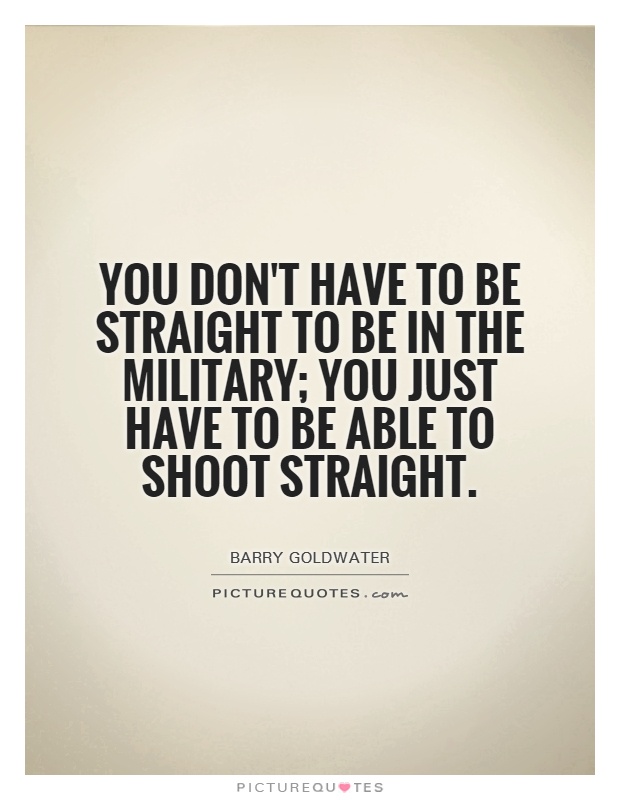
You don't have to be straight to be in the military; you just have to be able to shoot straight
Barry Goldwater, a five-term United States Senator from Arizona and the Republican Party's nominee for President in the 1964 election, was a staunch advocate for individual freedoms and limited government intervention. He was also a strong supporter of the military and believed in the importance of a strong national defense. Goldwater famously said, "You don't have to be straight to be in the military; you just have to be able to shoot straight."This statement reflects Goldwater's belief in the meritocracy of the military. He believed that a person's sexual orientation should not be a barrier to serving in the armed forces, as long as they were capable of performing their duties effectively. Goldwater's stance on this issue was ahead of its time, as the military's policy on LGBTQ+ individuals was much more restrictive during his era.
Goldwater's belief in the importance of individual merit and ability over arbitrary characteristics like sexual orientation was a core tenet of his political philosophy. He believed that all individuals should be judged based on their skills, talents, and character, rather than on superficial factors. This belief was reflected in his support for civil rights and his opposition to discrimination in all its forms.
Goldwater's statement also highlights his pragmatic approach to military service. He believed that the primary purpose of the military was to defend the nation and its interests, and that the most important qualification for service was the ability to perform one's duties effectively. In Goldwater's view, a person's sexual orientation was irrelevant to their ability to serve in the military, as long as they were capable of shooting straight and fulfilling their responsibilities.
Overall, Barry Goldwater's statement, "You don't have to be straight to be in the military; you just have to be able to shoot straight," reflects his commitment to individual freedom, meritocracy, and a strong national defense. His progressive stance on LGBTQ+ rights in the military was a testament to his belief in equality and fairness for all individuals, regardless of their sexual orientation.

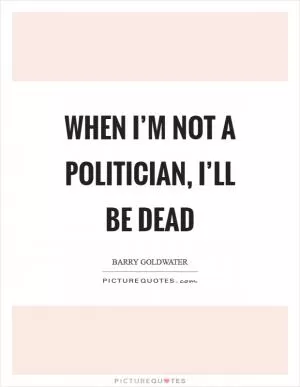
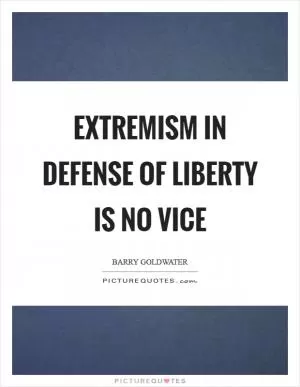


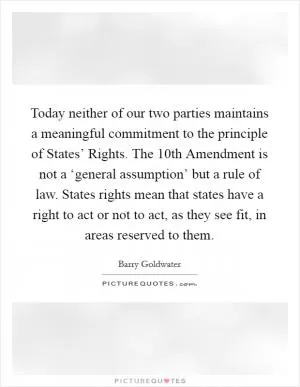




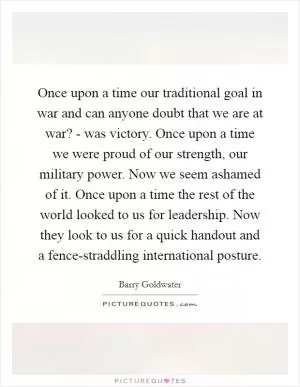

 Friendship Quotes
Friendship Quotes Love Quotes
Love Quotes Life Quotes
Life Quotes Funny Quotes
Funny Quotes Motivational Quotes
Motivational Quotes Inspirational Quotes
Inspirational Quotes